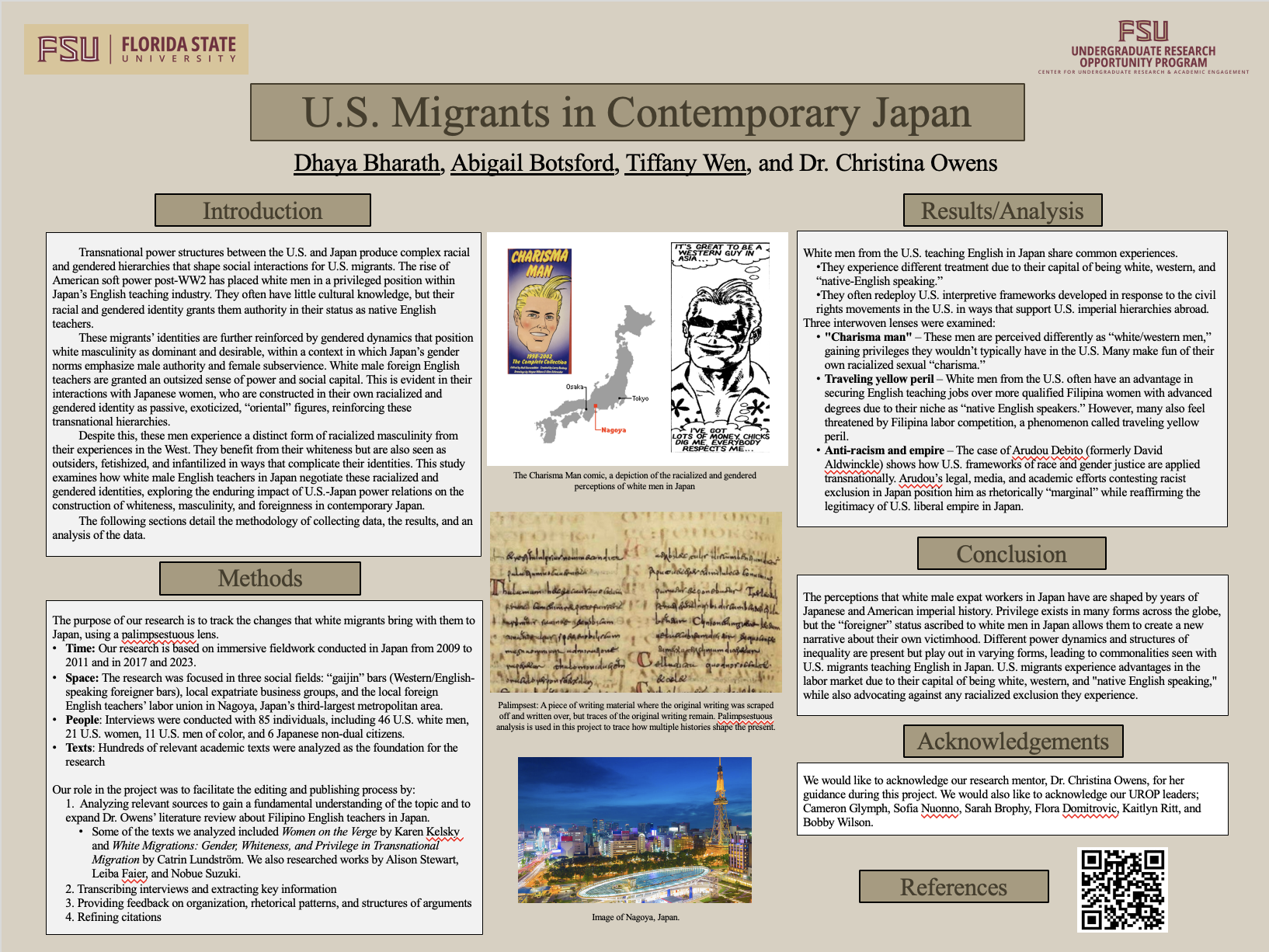Research Symposium
25th annual Undergraduate Research Symposium, April 1, 2025
Dhaya Bharath Poster Session 2: 10:45 am - 11:45 am/ Poster #21

BIO
Hello! I'm Dhaya and some of my interests include international relations, geopolitics, and sociology. I am from Ashburn, Virginia, and I plan on pursuing immigration law, civil rights law or research.
U.S. Migrants in Contemporary Japan
Authors: Dhaya Bharath, Dr. Christina OwensStudent Major: Political science, geography
Mentor: Dr. Christina Owens
Mentor's Department: Honors Mentor's College: Undergraduate Studies Co-Presenters: Abigail Botsford, Tiffany Wen
Abstract
As migrants cross borders, their ideas about justice, innocence, and victimhood travel with them. Our research investigates how interpretive frameworks developed within the U.S. in response to our civil rights movements can be redeployed abroad in ways that ultimately help support the continuance of U.S. imperial influence abroad. We focus on three lenses: the “charisma man”, traveling yellow peril, and liberal anti-racism. The data was taken from a collection of Dr. Owens’ findings from over two years of immersive fieldwork and participant observation conducted in Japan, 85 interviews, and a cross-analysis of cultural texts. We have found that U.S. citizens teaching English in Japan have common experiences shaped by their identities. First, many U.S. men experience being viewed in a new way as “white/western men”, which can inspire partying in expat bars, making fun of their own racialized sexual “charisma”, and challenging racialized exclusion from public life in Japanese courtrooms. Second, in the English teaching market, they are more likely to attain jobs over more qualified Filipina women with advanced degrees because they are seen as “native English speaking,” but they can simultaneously feel threatened by Filipina labor competition and contest the terms of their employment through unions. The implications of these findings are that U.S. migrants bring along ideas concerning race, gender, and labor relations when they move abroad, affecting their actions and influencing the English teaching labor market in Japan.
Keywords: Japan, migrants, privilege, race, gender

